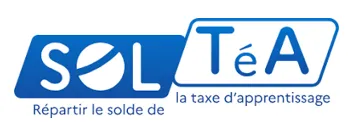Most companies in France pay an apprenticeship tax to help finance apprenticeships and technological and vocational training. For the Volvo Renault Trucks group, we decided to pay our apprenticeship tax to Centrale Lyon because we've been in the same area for years, and Centrale's training courses are fully aligned with our decarbonization challenges.
Odile DA COSTA DIAZ, Recruitment Manager for the VOLVO GROUP

To pay the tax to CENTRALE LYON :
The apprenticeship tax payment is made on the SOLTéA platform.
To find CENTRALE LYON on SOLTéA, enter one of the following:
- The name: ECOLE CENTRALE DE LYON
- The UAI (Unité Administrative Immatriculée): 0690187D
- The SIRET: 196 901 870 00010
What is the apprenticeship tax used for?
With its new strategy, Centrale Lyon has set itself the goal of becoming the European Caltech recognized for its expertise in major transitions by 2030, at the service of socio-economic players. To achieve this goal, Centrale Lyon is attentive to the need to develop the essential skills required to support industrial change and the emergence of new professions. In order to adapt the School's curricula and train students on the equipment and software used by companies, the apprenticeship tax payment helps to renew teaching equipment to maintain cutting-edge experimental activities.
Schemes
Companies subject to income or corporation tax with at least one establishment in France and employing at least one employee are liable to pay the apprenticeship tax to URSAFF or MSA (Mutualité Sociale Agricole).
The basis for calculating the apprenticeship tax is payroll. It is made up of two parts:
- A main part, at a rate of 0.59% to finance apprenticeship contracts;
- A balance, corresponding to a rate of 0.09%, for the development of initial technological and vocational training (excluding apprenticeship) and professional integration.
Funded actions
Supporting Centrale Lyon through the apprenticeship tax makes it possible to contribute directly to the School's development through its flagship projects:
- Launch of new initial training diplomas: CapECL integrated preparatory class, assistant-engineer bachelors, new engineering courses, double diplomas, inter-institution diploma on major transitions....
- Strengthening the pedagogical engineering center and developing the skills approach
- Acquiring new equipment and machines for student laboratory activities
- Equipping the fablabs on the École's two campuses
- Involving industrial experts in certain areas of training
.
Energies décarbonnées
- Matériel à financer : simulateur éclairage solaire, électrolyseurs, piles à combustibles, turbine à vapeur, chaine de production et de conversion
- Nombre d'élèves concernés : 947
- Diplômes concernés : Ingénieur de spécialité en Energie (apprentissage), Ingénieur Généraliste, Masters
Continuum Intelligence Artificielle
- Matériel à financer : système de puces, logiciels de modélisation
- Nombre d'élèves concernés : 978
- Diplômes concernés : Bachelor Data Sciences, Centrale Digital Lab, Ingénieur Généraliste, Master NSE
Inclusion et Diversité
- Matériel à financer : actions de sensibilisation, mobilité
- Nombre d'élèves concernés : 1543
- Diplômes concernés : Bachelor Data Sciences, Cap ECL, Centrale Digital Lab, Ingénieur de spécialité Energie, Ingénieur Généraliste, Masters
Les actions financées
Soutenir Centrale Lyon à travers la taxe d'apprentissage permet de contribuer directement au développement de l’École à travers ses projets phares :
- Lancement de nouveaux diplômes de formation initiale : classe préparatoire intégrée CapECL, bachelors assistant-ingénieur, nouveaux cursus d’ingénieurs, doubles diplômes, diplôme inter-établissement sur les grandes transitions...
- Renforcement du pôle d’ingénierie pédagogique et développement de la démarche compétence
- Acquisition de nouveaux matériels et de nouvelles machines pour les activités de laboratoires des élèves
- Équipement des fablabs des deux campus de l’École
- Intervention d’experts industriels dans certains domaines des formations

